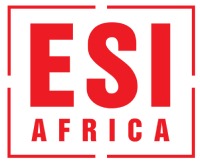Nigeria: NERC seeks public input on draft solar net billing rules
With the solar expansion in Nigeria, stakeholders approached NERC with requests to explore implementing a net metering arrangement
The Nigerian Electricity Regulatory Commission (NERC) has invited public comments on its draft net billing regulations, marking a new phase in the country’s solar energy expansion.
NERC said Nigeria’s solar energy capacity has experienced significant growth in recent years.
NERC reports massive solar expansion in Nigeria
In 2023, solar panel imports were valued at more than $200 million, translating to more than four million panels, with a substantial portion allocated to captive power generation, the Commission said.
“By Q1 2025, the value of imported solar panels had reached approximately ₦125.29 billion (around $82m). This expansion reflects the increasing adoption of renewable energy, particularly in rural and off-grid areas, driven by government initiatives and private sector investments.
“In 2024, Nigeria added 63.5MW of solar capacity, bringing the total installed capacity to 385.7MW, further accelerating the shift towards decentralised energy solutions,” said NERC.
Given this expansion, stakeholders have approached the Commission with requests to explore the possibility of implementing a net metering arrangement, enabling the export of excess power back into the grid for “commercial value”.
In compliance with its Business Rules and pursuant to Sections 46 and 48 of the Electricity Act (EA) 2023, which govern NERC’s proceedings, consultations and public hearings, the Commission has developed draft regulations on net billing.
Nigeria looking to shore up and bolster energy sector
This call comes after the Nigerian Electricity Regulatory Commission’s (NERC) 3rd NESI Stakeholders Meeting of 2025.
The gathering this week brought together State Electricity Regulatory Commissions/Bureaus (SERCs/SERBs) and key players across the Nigerian Electricity Supply Industry (NESI) to address sector reforms, market performance and regional interconnection.
At a dedicated roundtable with state regulators, discussions centred on challenges in metering, account setup and SubCo governance structures, alongside calls for a Forum of Regulators to enhance collaboration at state level.
Drive to improve billing accuracy, smart meter rollout
In June, NERC announced that in a bid to improve the accuracy of billing for electricity and to stem “collection losses” the government of Nigeria has confirmed that it is set to deploy millions of smart meters.
As part of efforts to reform the power sector and eliminate estimated billing, the Federal Government will roll out seven million smart meters under the Presidential Metering Initiative.
And in January, ESI Africa reported that despite an increase in the roll out of electricity meters in Nigeria, more than half of the more than 13 million registered electricity customers across the country’s distribution companies (DisCos) are still without this technology.
The NERC Third Quarter 2024 report released toward the end of December showed that as of 30 September 2024, 6,156,726 (46.15%) out of the 13,339,635 registered electricity customers across the 12 DisCos were metered.
NERC is inviting the general public to provide comments on the draft net billing regulations which can be accessed on the NERC website.
Cover photo: Some of the female STEM cadets trained in solar installation and renewable energy technologies at the Nigerian Defence Academy (NDA) in Kaduna. Source: REA/X


